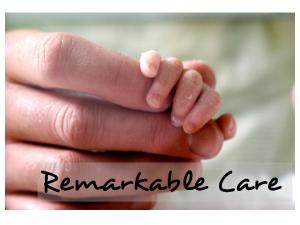Our microwave broke a couple of weeks ago. My wife went online, found the manufacture’s website and scheduled a technician to come to our house. The manufacture’s website advised us that the technician charged $85 just to show up. Of course parts and labor were extra. The scheduling was done entirely online and immediately after approval, we received an email confirmation for the date and time of the service call. As expected, they gave us a window of 3-hours for the tech to show up.
 The day before service was scheduled, we got a courtesy call, albeit by a computer voice reconfirming the scheduled service. I received another courtesy call the day of, advising me I was next for our service call. The technician showed up 15 minutes after the call, roughly 30 minutes before the 3-hour window was up.
The day before service was scheduled, we got a courtesy call, albeit by a computer voice reconfirming the scheduled service. I received another courtesy call the day of, advising me I was next for our service call. The technician showed up 15 minutes after the call, roughly 30 minutes before the 3-hour window was up.
I showed the tech the problem and he told me the microwave needed a “Magnetron” (sounds like a part that would go on the Millenium Falcon, not my microwave).
The tech opened up his laptop, punched in some keys and told me that the part was under warranty, but I had to pay for the service call and the labor. Since I don’t know life without a microwave, I went ahead and said yes to the repair.
Apparently, he had the part in his truck and within 20 minutes he replaced it and I was handing him my credit card, which he swiped right then and printed a receipt. Very impressive.
Does Healthcare have a chance?
I couldn’t help to think why our health care system isn’t as efficient as what I just described. I know there are automated call backs systems for appointment reminders and lab results. I also know that some practice management systems allow people to make appointments online.
But I’m talking about the end to end seamless experience; the exceptional connection; the remarkable interaction; an experience worth talking about.
Do you think most offices are unable to provide that WOW service because of insurance companies? Are they the ones hindering our ability to provide a comprehensive experience? Is it the lack of technology adoption in physician practices? Is it patient’s unwillingness to consume health care the same way they consume other things?
It is easy to blame all of the above. For starters, if we didn’t have to deal with the hassles insurance companies give us, imagine how much time and effort would go to providing health care. Technology is also very expensive and difficult to implement. That is obvious by seeing how few medical practices have adopted EMR’s. And then we have patients who clearly believe they have a perfect right to highly expensive, critical health care, even when they cannot pay for it.
But, how about those of us that are managers, supervisors and leaders in our practices. Are we to blame too?
The options are simple really. We can either throw up our hands and keep complaining; which doesn’t help nobody. Or what can find ways to improve our patient’s experiences at our medical offices.
As a patient, which practice would you prefer to go?
@PediatricInc


Great piece! Until doctors truly internalize that patients are actually consumers don’t expect many changes. The ‘early adopters’ that recognize this reality and the new reality of instant patient feedback to the world at large (i.e. potential patients) will prosper.
Most important though, recognize that this requires a top down effort. The days of the rude receptionist and curt office staff have to end. But this will only happen when the doctor at the top sets the correct tone. In every other business the motto is “customer is always right” why shouldn’t it be the case here?
LikeLike
Mordy,
The fact of the matter is that medical practices are not exempt from providing a good customer experience. Same principles applies just like any other business.
Leadership plays a big role as in all businesses. If the leaders of the organization, whether they are the docs or the practice managers, are not setting the example, the staff will follow the lead (or lack thereof) and parents/patients are going to be put off.
I recently read a statistics that the two main reasons patients leave a medical practice was because the doctor lacked bedside manners and the staff was rude. So you’re right, until everybody is on board, chances to achieve remarkable care is diminished.
Thank you for commenting.
Brandon
LikeLike